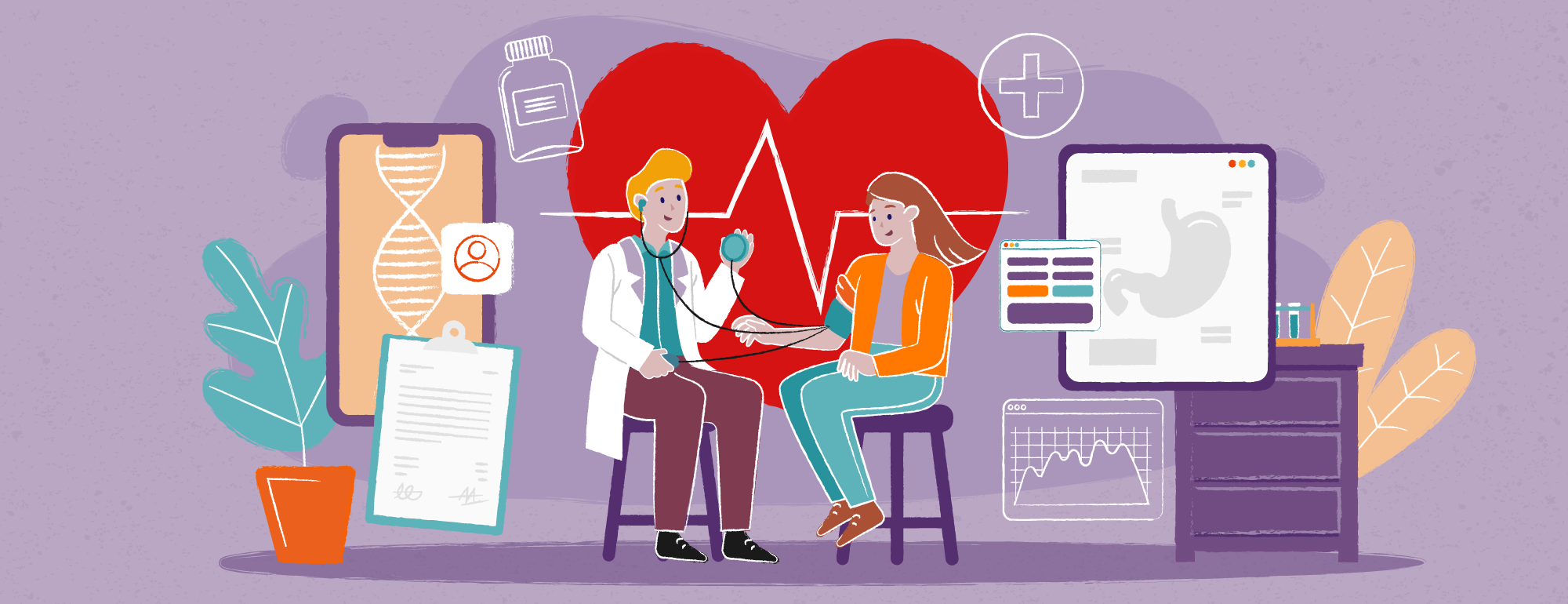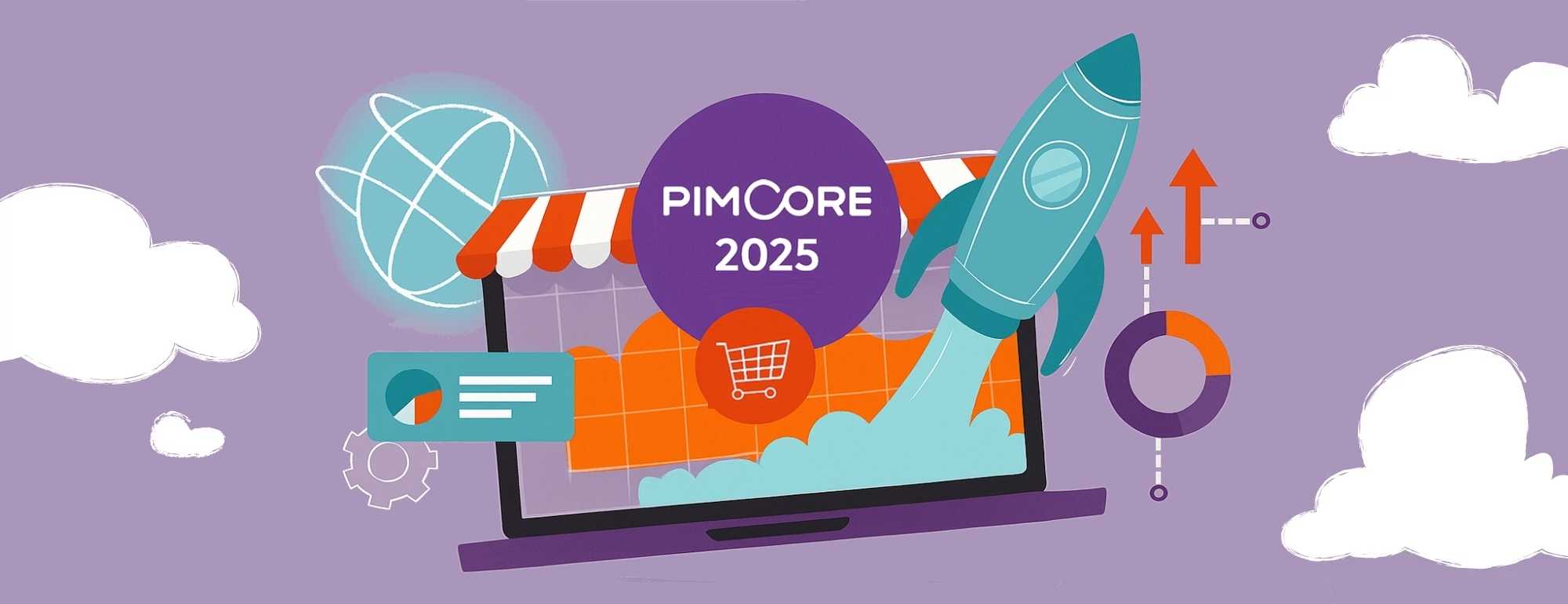Digital Transformation in Healthcare: A New Era of Patient-Centric Care
Of all sectors, healthcare is one that benefits the most from digitalization. Traditionally rooted in hands-on patient care and face-to-face consultations, is the entire market is undergoing a seismic shift.
Every step of the healthcare journey, from initial appointments to recovery check-ins, is being enhanced by digital innovations. What are the most popular digital healthcare solutions? And how can digital transformation initiatives back up patients’ needs along with medical institutions?
What is Digital Transformation in Healthcare?
Digital transformation in healthcare business refers to the integration of digital technologies into medical practices, operations, and patient interactions, fundamentally reshaping the healthcare experience. It encompasses a wide range of digital innovations in healthcare, from electronic health records and telemedicine platforms to data analytics and AI-driven diagnostics.
Such digital transformation in healthcare industry businesses is primarily aimed at enhancing patient care, streamlining operations, improving data management, and increasing accessibility to medical services. By leveraging technology, healthcare institutions can offer more personalized treatments, make informed decisions based on data insights, and adapt their business models to the evolving needs of patients in the modern digital age.
What are the benefits of digital transformation in healthcare?
The digital transformation of healthcare offers a multitude of advantages that elevate the standard of care and optimize operational efficiency. Firstly, it enhances patient experiences by providing personalized treatments, reducing wait times and offering remote consultations through telemedicine.
Secondly, digital healthcare technologies can streamline administrative healthcare processes further, minimizing manual errors and automating tasks such as patient registration and billing. Data-driven insights from integrated systems enable healthcare professionals to make informed decisions, leading to improved patient outcomes.
Additionally, digital platforms facilitate real-time collaboration among medical teams, ensuring cohesive patient care.
Lastly, by adopting these digital technology solutions, healthcare companies can expand their reach, making medical services more accessible to remote and underserved populations.
How Patients Expectations Evolved
Patients’ expectations in healthcare have undergone a profound transformation. Today’s patients anticipate a healthcare experience that is digitally integrated, easily accessible and tailored to their individual needs.
They expect convenient access to their medical records, the ability to easily book appointments online and conduct telemedicine consultations from the comfort of their homes. Furthermore, with the rise of wearable tech and health apps, patients are becoming more proactive in monitoring their health and seek platforms that their healthcare facilities can seamlessly integrate with these tools.
Data security is also paramount. Patients entrust healthcare providers with their most sensitive information and expect that their health data will be stored securely and handled with the utmost confidentiality. In essence, the modern patient looks for a blend of patient safety, technology-driven efficiency and personalized care in their healthcare journey.
Patients also expect more personalized care and services. This pandemic further shifted hospital expectations. Approximately 40% of consumers are planning on retaining telemedicine as part of their future health strategy.
How Digital Transformation is Changing Healthcare
In the rapidly evolving landscape of healthcare, the integration of digital technologies for healthcare providers is no longer a luxury but a necessity.
As patient expectations shift and the demand for streamlined services grows, healthcare institutions are compelled to reevaluate their traditional practices. To embrace digital transformation in the healthcare market, providers need to show new business models that not only address these changing dynamics but also uncover opportunities for enhancement across various domains.
From the way patients engage with healthcare providers to the backend operations that ensure smooth functioning, every aspect stands to gain from this digital shift. Let’s delve deeper into the specific areas within healthcare that can significantly benefit from this transformation.
- Patient Engagement – traditional methods of patient interaction are becoming obsolete. Digital platforms can offer more personalized healthcare services through patient portals, appointment booking systems and online consultation services.
- Operational Efficiency – manual administrative tasks, from patient registration to billing, can be automated, reducing errors and speeding up processes.
- Data Management – with the influx of patient data, there’s a need for efficient data storage, retrieval and analysis systems.
- Supply Chain Management – tracking medical supplies, managing inventory and ensuring timely procurement can be streamlined with integrated digital solutions.
What Solutions are Driving Digital Transformation in Healthcare?
The healthcare industry is undergoing a monumental shift, propelled by digital revolution and a suite of innovative technological solutions. These tools and platforms, ranging from data-centric systems to advanced computational technologies, are collectively redefining the way healthcare providers operate and interact with patients. As we delve deeper into the core solutions driving this transformation, it becomes evident that the future of healthcare is not just digital transformation, but also more integrated, efficient, and patient-centric than ever before.
Electronic Health Records: The Backbone of Modern Healthcare Digitization
When it comes to the technological advancements driving digital transformation in in healthcare, Electronic Health Records (EHRs) stand at the forefront.
EHRs are digital versions of a patient’s traditional paper charts. Electronic Medical Records contain history, diagnoses, medications, treatment plans and even test results. They facilitate real-time, patient-centered information that is instantly accessible and securely shared among multiple authorized healthcare facilities and agencies.
The adoption of EHRs has revolutionized healthcare operations, offering benefits such as improved patient outcomes, increased patient participation, enhanced coordination of care, and better diagnostics. By providing a comprehensive view of a patient’s health, EHRs enable health professionals to make better informed clinical decisions, ensuring that care is consistent and coordinated across all touchpoints in a patient’s healthcare journey.
The Role of System Integration in Healthcare Organizations
One of the primary challenges health systems and healthcare organizations face is the integration of disparate systems. Different departments might use different software solutions, leading to data silos and inefficiencies.
This is where system integration comes into play. By ensuring that all systems communicate seamlessly, healthcare providers can offer a unified patient experience. For instance, when a patient books an appointment online, the information is instantly available to the reception, the doctor, and the billing department. What’s more, in line with healthcare privacy needs, such automation is also controlled, so that only those with the necessary roles (I.e Doctors) can access more sensitive or personal patient data.

Telemedicine and Remote Consultations
A revolution in patient-doctor interactions, we can summarize telemedicine as the practice of delivering healthcare services via telecommunication technologies. It offers unparalleled accessibility, especially for those in remote locations, and provides a flexible and cost-efficient alternative to traditional consultations. Compared with prepandemic levels (1% of visits), telemedicine adoption is much higher and comprises around 14-17% of overall visits.
Yet, according to McKinsey, this adoption hasn’t been spread as much as it could be, as more than 50 million in-person visits per year could be converted into remote consultations.
It’s a huge opportunity for the healthcare industry to onboard on-demand healthcare and improve accessibility to their healthcare services.
Artificial Intelligence and Machine Learning in Diagnostics
Data is the new gold, and healthcare is sitting on a goldmine. Harnessing the power of algorithms and computational models, AI and ML are making significant strides in healthcare.
Every patient interaction, every treatment, and every diagnosis generates data. They play a crucial role in medical image analysis, predictive health assessments and crafting personalized treatment plans tailored to individual patient data.
Data science tools can analyze this data to derive actionable insights about patient health. Whether it’s predicting disease outbreaks, optimizing hospital bed allocation, or personalizing patient care, data science is revolutionizing healthcare.
E-Commerce Platforms in the Healthcare Market
While e-commerce is often associated with retail, its potential in healthcare is immense. From online pharmacies to medical equipment sales, e-commerce platforms can expand the reach of healthcare providers.
Moreover, with integrated systems, these platforms can offer personalized recommendations, track patient purchases, and even send automated reminders for medication refills.

Blockchain for Data Security and Integrity in Healthcare Industry
A decentralized ledger technology, blockchain is ensuring unparalleled data security in the healthcare system. It guarantees the integrity and authenticity of medical records, facilitates secure data sharing among providers, and brings transparency to the pharmaceutical supply chain.
Wearable Medical Devices
Another emerging health technology involves companies capturing their health data using medical equipment such as wearable technology. Most patients are satisfied undergoing a medical visit once a year. But patients increasingly demand information about their health through digital devices and are increasingly focused on prevention and management.
Healthcare companies, therefore, are making an aggressive investment in wearable technologies to monitor patients at risk to predict a major health event.
Cloud: The Backbone of Digital Transformation in Healthcare
With the exponential growth of healthcare data, healthcare institutions need robust storage solutions. Cloud services offer scalable, secure, and cost-effective storage solutions.
Moreover, cloud platforms enable remote access to medical devices, ensuring that doctors and patients can access medical records, test results, and other essential data from anywhere in the world.
Factors to Consider Before Embarking on Digital Transformation in Healthcare
The allure of digital transformation in healthcare is undeniable, given its potential to revolutionize patient care and streamline operations. However, diving headfirst without a well-thought-out strategy can lead to pitfalls. Here are some critical considerations and digital transformation challenges to keep in mind:
Regulatory Compliance
Navigating the complex web of healthcare regulations is paramount. The sector operates under strict guidelines, particularly when it comes to the handling and storage of patient data. Implementing any digital or healthcare technology solution requires a thorough understanding of these regulations to ensure full compliance and avoid potential legal ramifications. One of the concepts that healthcare organizations should incorporate is Privacy by Design. This approach to IT systems development mitigates security risks from the outset.
Infrastructure Readiness
The foundation of any successful, digital transformation journey lies in the robustness of the existing IT infrastructure. Before introducing new technologies such as the solutions above, healthcare institutions need to conduct a comprehensive assessment of their current systems. This evaluation will determine if they can support the new solutions or if such upgrades and modifications are necessary.
Staff Training
The most advanced digital tools are only as effective at improving patient outcomes as the individuals operating them. It’s vital for healthcare leaders to recognize that introducing new technologies may come with a learning curve for the staff. Investing in continuous training and providing ample support ensures that healthcare professionals can adapt to and effectively utilize these tools, maximizing the benefits of the transformation.
Patient-Centric Approach
At the heart of healthcare is the patient. While it’s easy to get caught up in the allure of cutting-edge technologies, the primary objective should remain clear: enhancing patient care and experience. Every digital solution adopted by healthcare professionals should be evaluated with this goal in mind, ensuring that it genuinely adds value to the patient’s journey, from diagnosis to treatment and beyond.
Looking Ahead: Transformation in Healthcare
Leading digital transformation in healthcare is not a luxury; it’s a necessity. As patient expectations evolve and the healthcare landscape becomes more competitive, institutions that embrace digital solutions will thrive. Whether it’s integrating systems, harnessing the power of data, or leveraging cloud solutions, the future of healthcare is digital.







